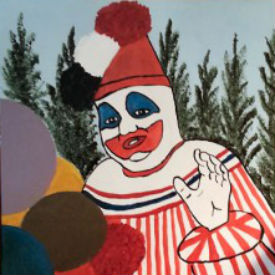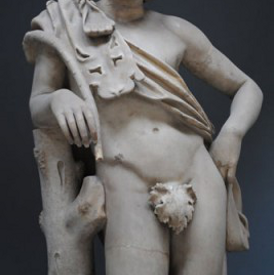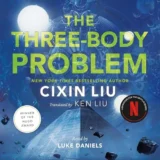 Imagine the place. Dark and subversive, oozing with ‘blasphemous’, ‘racial’, ‘offensive’, ‘obscene’, ‘Satanic’, and ‘anarchistic’ literature. Its librarian, Janet Yanosko, added her own pithy remarks to a long list of books that were banned for their offensive nature. Books like:
Imagine the place. Dark and subversive, oozing with ‘blasphemous’, ‘racial’, ‘offensive’, ‘obscene’, ‘Satanic’, and ‘anarchistic’ literature. Its librarian, Janet Yanosko, added her own pithy remarks to a long list of books that were banned for their offensive nature. Books like:
- Fahrenheit 451 by Ray Bradbury: a book on censorship gets censored!
- James and the Giant Peach by Roald Dahl: promotes drugs and disobedience
- Where’s Waldo by Martin Handford: for nudity
- 1984 by George Orwell: for being pro-communist
- The Lorax by Doctor Seuss: because it criminalizes the logging industry
- Zen Buddhism: selected writings by D.T. Suzuki: because it portrays Buddhism as appealing
- Slaughterhouse Five by Kurt Vonnegut: for its foul language
The irony is that The Forbidden Library seems itself to have found obscurity, joining the ranks of great ancient libraries that were destroyed … and silenced.
Books have been banned (and burned) on many occasions by many societies over humankind’s history of existence. Books considered critical of governments or societies with power were a common target. So were books that dealt with criminal matter or promoted views counter with popular worldviews, or were considered distasteful or disturbing.
The Bible, the Qur’an and other religious works were banned (and burned) over the years. In Medieval Europe, the Roman Catholic Church dealt with dissenting printed opinion through a program called the Index Librorum Prohibitorum (index of prohibited books).
I found a partial list on Wikipedia and share it here with you. I’ve bolded and italicized the ones I’ve read. How many did YOU read?
- Alice’s Adventures in Wonderland by Lewis Carroll: for portraying animals and humans on the same level
- The Age of Reason by Thomas Paine: banned in UK for blasphemy in 18th C
- All Quiet on the Western Front by Erich Maria Remaraque: banned in Nazi Germany for demoralizing and insulting the Wehrmacht
- Animal Farm by George Orwell: banned for anti-Stalin theme
- Adventures of Huckleberry Finn by Mark Twain: banned in some U.S. schools for use of racial slurs
- Bible: banned by the Index Librorum Prohibitorum in Catholic Church
- Black Beauty by Anna Sewell: banned in South Africa for using the word ‘black’
- Brave New World byAldous Huxley: banned for centering around negative activity
- Canterbury Tales by Geoffrey Chaucer: banned for sexual content
- Catcher in the Rye by J.D. Salinger: banned in some U.S. schools and libraries for sexual situations, immorality and other themes of impropriety and anti-Christian sentiments
- Civil Disobedience by Henry David Thoreau: banned in U.S. during McCarthyism
- Clan of the Cave Bear by Jean Auel: banned because of hardcore graphic sexual content
- The Communist Manifesto by Karl Marx and Friedrich Engels: banned in anti-Communist countries during the Red scare
- Doctor Zhivago by Boris Pasternak: banned in USSR for criticism of the Bolshevik Party
- Fahrenheit 451 by Ray Bradbury: for issues on censorship
- For Whom the Bell Tolls by Ernest Hemingway: banned in Spain during Francisco Franco’s rule for its pro-Republican views
- Gone with the Wind by Margaret Mitchell: banned in part of U.S. because of the use of the word ‘nigger’
- Grapes of Wrath by John Steinbeck: banned in some U.S. schools for use of the name God and Jesus in a vain and profane manner along with inappropriate sexual references
- Gulliver’s Travels by Jonathan Swift: banned in Ireland as wicked and obscene
- Hamlet by William Shakespeare: banned in Ethiopia
- Harry Potter by J.K. Rowling: banned in some U.S. school libraries for use of witchcraft and supposedly Satanic views
- King Lear by William Shakespeare: banned in UK out of respect to King George III’s aleged insanity
- Lady Chatterley’s Lover by D.H. Lawrence: banned in U.S. and UK for obsenity
- The Lion, the Witch and the Wardrobe by C.S. Lewis: challenged in part of U.S. for depicting graphic violence, mysticism and gore
- The Lorax by Dr. Seuss: banned in parts of U.S. for being an allegorical political commentary
- The Martian Chronicles by Ray Bradbury: challenged in U.S. for profanity
- Mein Kampf by Adolf Hitler: reproduction and sale is forbidden outside Germany, Austria and Netherlands for promoting Nazism
- Le Morte D’Arthur by Sir Thomas Malory: challenged in UK as ‘junk’
- 1984 by George Orwell: banned in USSR for political reasons; banned in U.S. for being pro-communist and for explicit sexual matter
- Of Mice and Men by John Steinbeck: banned in some U.S. schools and libraries for promoting ‘euthanasia’ and for profanity
- The Odyssey by Homer: Plato suggested expurgating it for immature readers and Caligula tried to suppress it for expressing Greek ideals of freedom
- On the Origin of Species by Charles Darwin: banned in various places for promoting the evolutionary theory
- Paradise Lost by John Milton: listed on the Indx Librorum Prohibitorum in Rome
- To Kill a Mockingbird by Harper Lee: challenged due to racial themes
- Ulysses by James Joyce: banned in U.S. for its sexual content
- Uncle Tom’s Cabin by Harriet Beecher Stowe: banned in southern States and Czarist Russia for racist portrayal of African Americans and use of word ‘nigger’.
This all begs the question of what art truly is and should be. Susan Sontag suggested that “real art makes us nervous.” The genius of art skirts the edge of propriety and comfort to ask the questions that help us define our own humanity. Oscar Wilde remarked, “an idea that is not dangerous is unworthy of being an idea at all.” Benjamin Franklin suggested that, “if all printers were determined not to print anything till they were sure it would offend nobody, there would be very little printed.”
Lillian Hellman, who was subpoenaed to appear before the House of Un-American Activities Commitee in 1952, exclaimed, “I cannot and will not cut my conscience to fit this year’s fashions.”
Live and write from the heart.










Unfortunately, the reason The Forbidden Library fell into obscurity is because Janet lost her battle with cancer several years ago, at a very young age. She was my husband’s best friend and one of the most wonderful women I’ve ever been graced to meet. While I never met her in person, her presence online and over the phone could fill a room. She is truly missed by her friends and family!